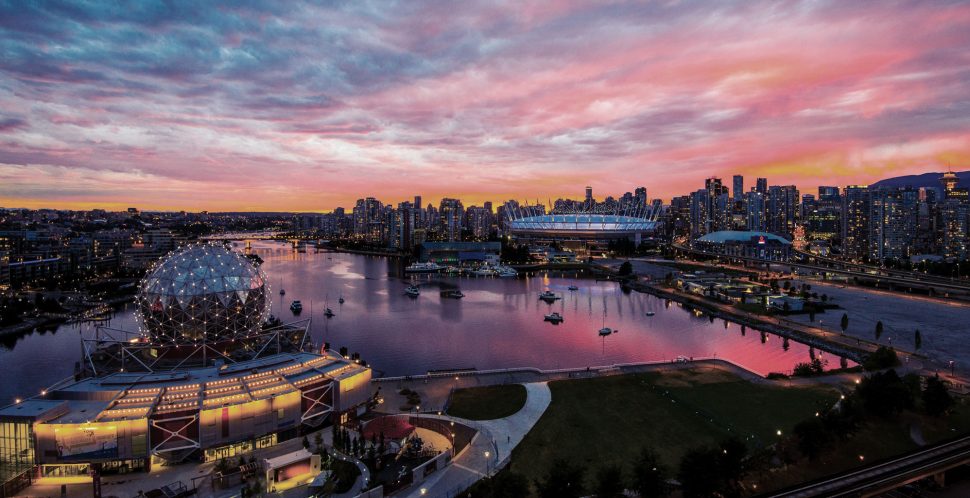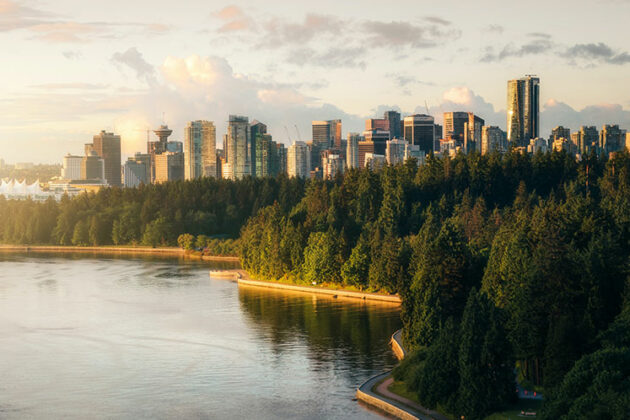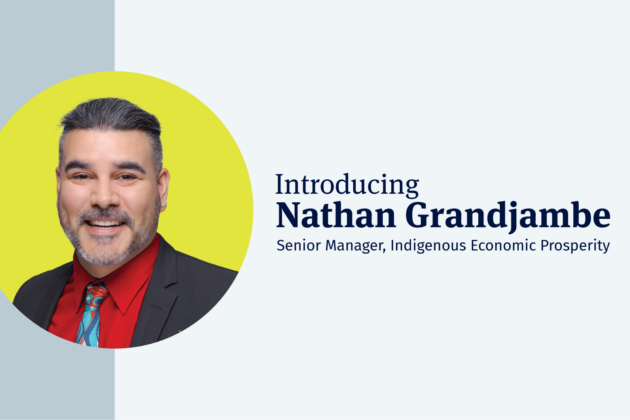Did you know that Vancouver has been by far the fastest growing economy in Canada since 2013? That it was one of very few economies globally that suffered no real recession immediately after the global financial crisis of 2008? That capital investment last year reached record levels of $5 billion, up from $1 billion just five years ago? That we grew jobs faster than anyone else? That we achieved all this whilst significantly decarbonizing our economy, reducing GHGs by 7% and growing green jobs by 35%?
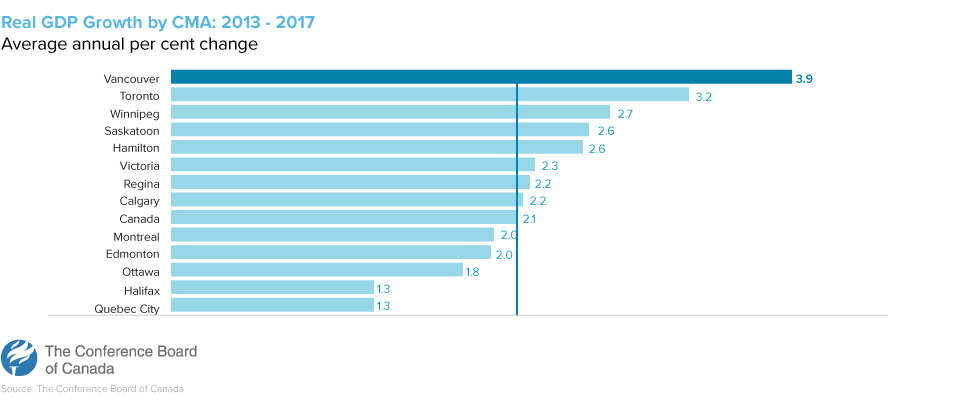
Probably not, as local and national media tend not to publish a good news story, especially if it’s about Vancouver. (As a British immigrant, I’m still struggling to understand this whole ‘Western Alienation’ thing.). With most newsrooms being based in Toronto, getting airtime for positive stories is always going to be a challenge, but perhaps the other reason for the lack of coverage is our housing market, which, as every Vancouverite knows, tends to dominate all conversations.
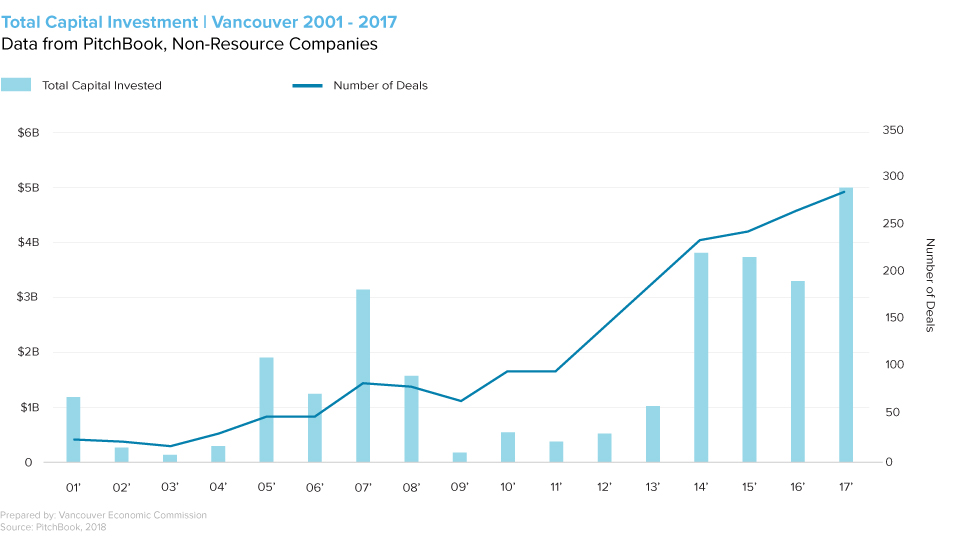
Let’s be clear about this; Vancouver and other B.C. cities have still so much more to do to tackle the huge mismatch between local salaries and houses prices – as brilliantly identified by Andy Yan.
Thankfully, we have now seen unprecedented (and overdue) action on housing affordability from all three levels of government that finally seems to be having the desired impact – to slow the rate of growth in our housing prices.
The other side of this equation, however, is wages – and that’s where we at the Vancouver Economic Commission (VEC) have focused our efforts.
Bridging the Wage Gap in Vancouver
On that front, we have worked on actively supporting sectors of the economy that pay some of the best wages – sectors that have the best long-term potential to support our economy: the tech, digital entertainment and green economy sectors. Salaries are significantly picking up in these sectors. Wages for entry-level tech jobs (many of which not requiring degrees) are increasing by 7–10% each year and now start at $65,000, in-demand roles at $100,000 and sectors like VFX & Animation pay senior-level wages at a median of $150,000. Green jobs salaries are also noticeably picking up, especially in Green Building Design and Cleantech. The film industry here has doubled in just a few years, helping to push wages up and provide year-round stable employment in what used to be a less secure occupation.
We got a considerable amount of criticism recently for bidding for Amazon HQ2. Like this, and this. But the reality is that most people know Amazon pays really high wages (six figures on average) and we desperately need more high-paying wages like this to push the bar up for everyone. Perhaps that’s why some polls showed as many as 90% of respondents supporting our bid (Daily Hive Survey, October 2017). And that’s why we’re so delighted our HQ2 proposal helped land Vancouver another 3,000 jobs to add to the 2,000 Amazon jobs we already have. (In effect, we came second to whoever lands HQ2 – which we’ll happily take).
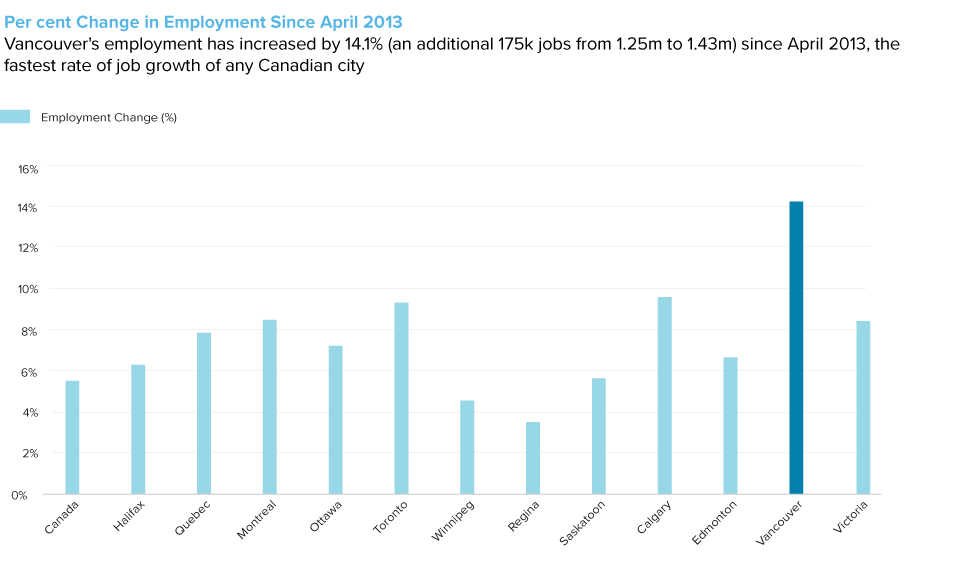
But we bid for projects like HQ2 whilst being very conscious of the wealth gap between the rich and the poor. A central tenet of our new and upcoming economic development strategy is inclusive economic development – we must strive for economic prosperity for all and not the select few. Just a scan of news headlines from around the world shows us the danger of mass inequality and the social and political unrest that this leads to.
There is a lot more work to be done and we know we certainly can’t do it on our own. For example, for far too long employers have relied on the “Vancouver Premium” as a justification for lower pay than peer cities – people are being paid lower wages for doing the same jobs that have better remuneration in other Canadian cities. This cannot continue.
Vancouver has achieved a great deal of economic success, and judging by the massive increase in enquiries we get each week, investors, talent and other cities around the world are taking notice. Isn’t it time that Canada paid some attention too?
 James Raymond
James Raymond
James Raymond is the Manager of Research & Analysis at the Vancouver Economic Commission. In this role, he works to create and synthesize the best sources of data to provide insight and inform investors, media, influential business leaders and the wider public about the state of Vancouver’s economy. A graduate of one of Europe’s Top 10 Business Schools, he emigrated to Canada in 2008 where he is now a citizen. He has a background in qualitative and quantitative research & marketing gained through 15+ years experience working in public, private and non-profit sectors for leading-edge organisations such as PA Consulting, Talkback Television, New South Wales Government and Dunnhumby where he notably project managed Europe’s largest targeted weekly marketing activity. He is passionate about truly sustainable economic development, and strives to establish Vancouver as a role model for other cities and regions to follow.
